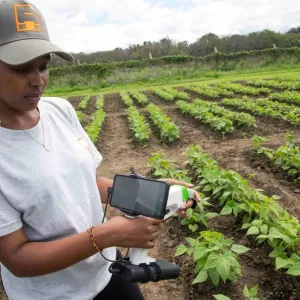How inclusive design is shifting power to farmers and closing the seed adoption gap
Researchers from the Alliance’s Artemis project developed mobile AI tools and farmer feedback systems in Tanzania and Colombia to transform how crop breeding responds to real-world smallholder needs. Across the Global South, crop breeding programs face a recurring challenge: the gap between improved varieties developed in research stations and the realities of smallholder farms. This mismatch is a byproduct

How inclusive design is shifting power to farmers and closing the seed adoption gap
Researchers from the Alliance’s Artemis project developed mobile AI tools and farmer feedback systems in Tanzania and Colombia to transform how crop breeding responds to real-world smallholder needs.
Across the Global South, crop breeding programs face a recurring challenge: the gap between improved varieties developed in research stations and the realities of smallholder farms. This mismatch is a byproduct of breeding systems that have historically been centralized, top-down, and data-poor, thus limiting their ability to reflect local growing conditions or farmer preferences.
But researchers are working to change that. Artificial intelligence (AI), when connected with participatory, human-centered design methods, has opened the field to exciting new opportunities. A set of mobile phenotyping tools, developed by the Alliance of Bioversity and CIAT’s Artemis project has harnessed AI to develop an inclusive, technology-enabled breeding system that generates more accurate data, amplifies farmer voices, and strengthens seed systems where they’re most needed.

